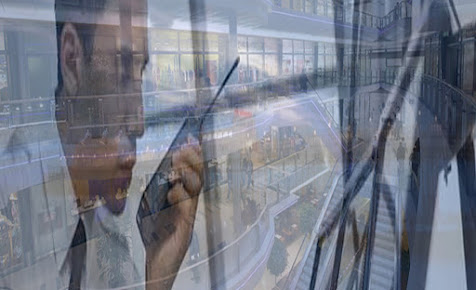The Role of Retail Security Guards in Preventing Shoplifting
In the intricate ecosystem of retail, one persistent challenge that merchants face is the issue of shoplifting. Shoplifting not only impacts the bottom line of businesses but also erodes trust within the community and disrupts the shopping experience for customers. Amidst this ongoing battle against theft, one stalwart line of defense stands firm: the retail security guard. In this discourse, we delve into the multifaceted role of retail security guards in preventing shoplifting, exploring their responsibilities, strategies, and impact on both businesses and consumers.
Understanding the Responsibilities
At the forefront of combating shoplifting, retail security guards shoulder a myriad of responsibilities. Their primary duty is to deter theft by maintaining a visible presence throughout the retail environment. This visual deterrent can dissuade potential shoplifters, serving as a reminder that vigilant eyes are watching. Moreover, security guards are tasked with conducting regular patrols, surveilling high-risk areas, and monitoring CCTV systems to identify suspicious behavior promptly. Beyond prevention, they play a pivotal role in apprehending perpetrators, collaborating with law enforcement, and facilitating the legal process when theft occurs.
Strategies Employed by Retail Security Guards
The arsenal of strategies employed by retail security guards is as diverse as the tactics used by shoplifters. One fundamental approach is proactive surveillance, wherein guards actively observe customers and employee activities to identify anomalies indicative of theft. This involves honing keen observational skills, recognizing behavioral cues, and leveraging technology such as surveillance cameras and electronic article surveillance (EAS) systems. Furthermore, security guards utilize strategic positioning, positioning themselves strategically to maximize visibility and coverage of vulnerable areas while remaining inconspicuous to potential perpetrators.
Additionally, retail security guards often implement access control measures, regulating entry and exit points to minimize unauthorized access and enhance overall security. This may involve verifying receipts at exits, conducting bag checks, or employing RFID technology to track merchandise movement. Collaborative efforts with store staff are also pivotal, fostering a culture of awareness and empowering employees to assist in detecting and deterring theft.
Impact on Businesses and Consumers
The presence of vigilant retail security guards yields tangible benefits for both businesses and consumers. From a business standpoint, effective shoplifting prevention translates into preserved profits and reduced inventory shrinkage. By safeguarding merchandise and deterring theft, security guards contribute to a more secure retail environment, fostering consumer trust and loyalty. This, in turn, enhances the overall shopping experience, ensuring that customers feel safe and valued while patronizing the establishment.
Moreover, the proactive stance against shoplifting taken by retail security guards serves as a deterrent not only to would-be thieves but also to potential perpetrators of other criminal activities. By maintaining a vigilant watch over retail spaces, security guards create an atmosphere of accountability and deterrence, dissuading criminal elements from targeting vulnerable businesses.
In the ongoing battle against shoplifting, loss prevention security guards Melbourne serve as stalwart guardians, defending businesses, and consumers alike. Their multifaceted role encompasses proactive surveillance, strategic deterrence, and collaborative engagement, culminating in a fortified defense against theft. As pillars of security within the retail landscape, security guards not only prevent financial losses but also uphold the integrity of the shopping experience, ensuring that patrons can shop with peace of mind. In essence, the impact of retail security guards extends far beyond the prevention of shoplifting, resonating throughout the realms of commerce, community, and consumer trust.


.jpg)

Comments
Post a Comment